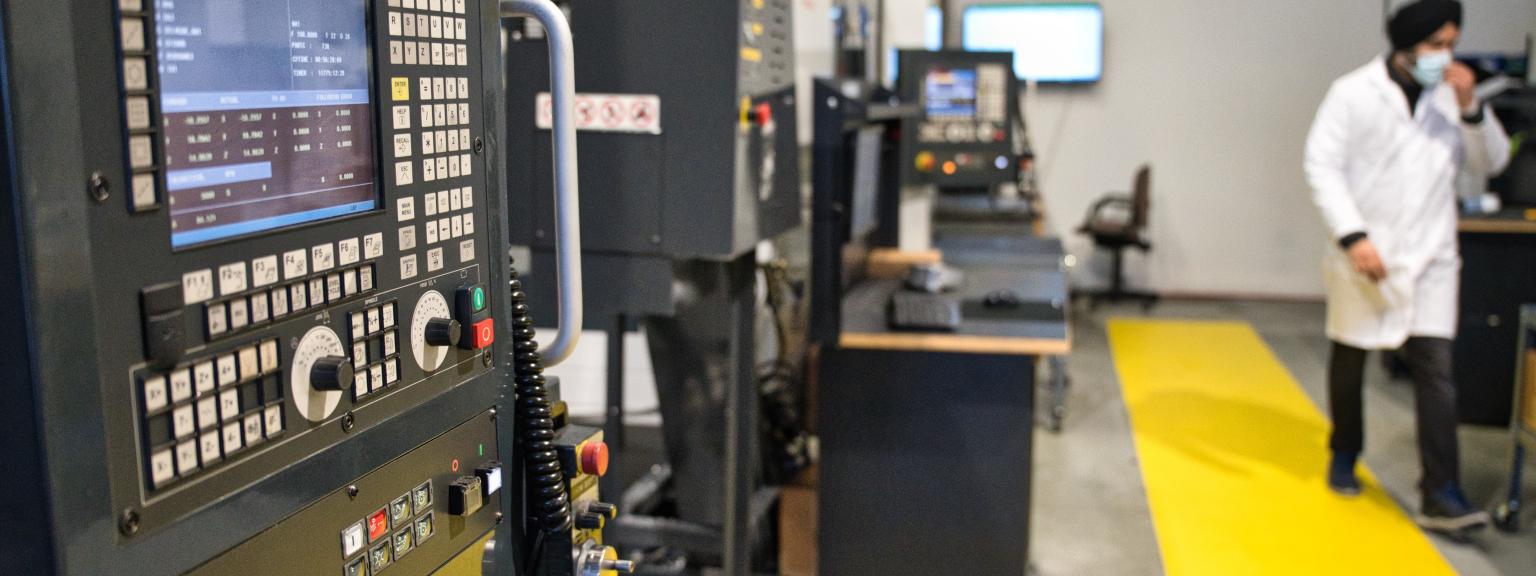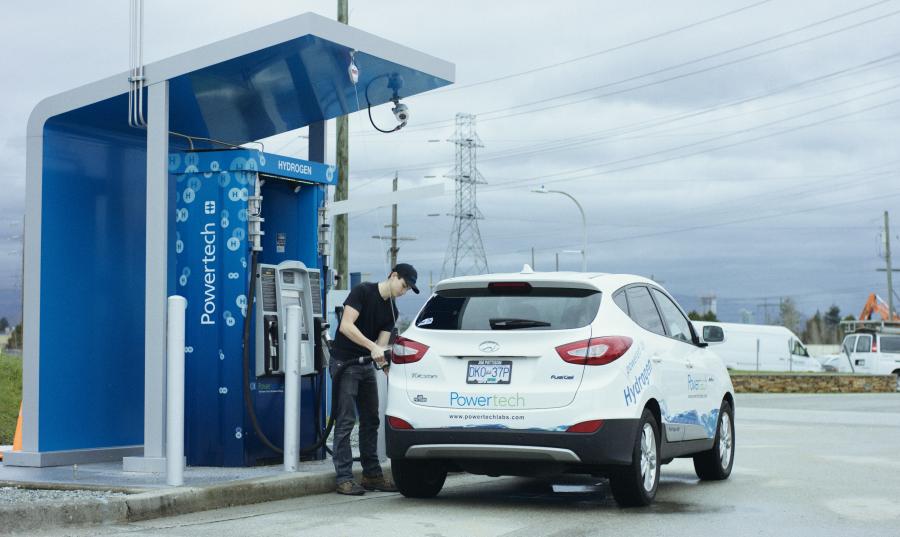
Surrey has long been a place where innovative clean technology companies naturally come to scale up their businesses. In fact, there is a growing movement of these companies that want to take advantage of BC’s technology innovation and the talent that makes it great. Here in Surrey, continued investment by the City into major capital projects such as the Surrey Biofuels Facility, and our West Village District Energy utility are just some of the innovative ways clean technology is being deployed in the community. Often these facilities act as a testbed for companies to trial their technologies or researchers from the nearby SFU Sustainable Energy and Environmental Engineering program to test a new concept.
In this article, we unpack some of the top sectors that are not only in Surrey, but anticipated to grow in the coming years.
Green Building Materials & Efficiency
Surrey is a hub for building material manufacturing and construction. There are nearly 14,000 construction companies and over 730 metal, wood, and non-metallic mineral manufacturing businesses operating in the city. The estimated Metro Vancouver market for building products is expected to total $3.3 billion from 2019-2032 and over the course of 2022 alone, the City of Surrey processed 280 development permit applications and approved over $2 billion in building permit value (https://dailyhive.com/vancouver/surrey-guaranteed-permitting-timlines-update-2023).
Further benefiting investors in this subsector, the Provincial BC Energy Step Code has created opportunities for energy efficient building construction materials producers and providers as it establishes a pathway to net-zero energy-ready buildings by 2032.
Surrey-based companies include Basalite, Reforus Wood Products, and Airfoam Industries.
Circular Economy
The circular economy involves designing out waste and pollution, keeping products and materials in use, and regenerating natural systems. The City of Surrey intends to be a leader in this domain. Through the Zero Waste Strategy, the City plans to become Canada’s first community to achieve zero waste landfill. Not only is this good for the environment, but Surrey companies have been building strong businesses from this concept.
Nexe Innovations for example is developing a compostable Keurig cup with a demonstration manufacturing facility in Surrey with plans to expand nationally. Another example is Auqapak Industries who manufactures insulated packaging materials for perishable goods that can be recycled and repurposed to manufacture other goods made from the same polymer material.
Water Technology & Remediation
With rapid urbanization and industrialization occurring in Canada and across the globe, public wastewater treatment systems increasingly need to address contaminant concerns, energy conservation, greenhouse gas emission reduction, and resource recovery. Regulations have made these issues even more pressing.
In Canada, the recent introduction of federal regulations for wastewater effluents has led to upgrades to secondary wastewater treatment plants (WWTPs) and the development of tertiary treatment facilities across Canada. In Metro Vancouver, this includes a $184 million upgrade to a secondary WWTP28 and the construction of a new $1.058 billion tertiary WWTP. This trend and these regulations have opened new opportunities for organizations that specialize in resource recovery, contaminant removal, and equipment and technologies for WWTP upgrades.
With Metro Vancouver’s population expected to reach 3.8 million people by 2050, and an average annual growth of about 35,000, continual infrastructure upgrades will provide opportunities to organizations and professionals in this domain.
Surrey has an established cluster of water technology companies, including International Water Guard, Ocion Water Sciences, BowRio Water Technologies, and BI Pure Water.

Clean Energy Vehicle Technologies
Electric vehicles and infrastructure have become priorities for both the Province and the City of Surrey. British Columbia’s CleanBC strategy aims for all new light-duty car and truck sales to be zero-emission by 2040 and is creating research and development opportunities for new lithium-ion technologies. Additionally, in Surrey, over $685,000 in multi-level government investment was committed in 2022 to establish 40 EV charging stations across the city. This would bring the total number of stations to more than 75 by 2025. The City of Surrey is also mandating EV charging stations in all new residential and commercial builds.
Beyond just the charging infrastructure, there is exciting tech being developed in the City of Surrey by RecycLiCo Battery Materials (formerly American Mangenese). This organization uses a patented process to recover up to 100% of cathode metals from battery scrap and upcycles them to high purity, battery ready materials.
Organizations within BC have a history of pioneering new technologies and insights in areas like hydrogen production and processing, fuel cell stack and system development, components and system testing, and standards development. In fact, BC now hosts Canada’s largest industry cluster of hydrogen fuel cell companies. Surrey is becoming a leader in this space. The city is home to two of three SFU Fuel Cell Research Lab facilities, each with state-of-the-art equipment for researching technologies. Also, SFU’s Sustainable Energy Engineering program and other local university programs are generating talent and opportunities for the commercialization of new fuel cell technologies.
Surrey’s group of hydrogen fuel cell technology companies include Powertech Labs and CIMTech Manufacturing.
Visit our Clean Technology page for more information on the sector in Surrey or visit https://investsurrey.ca/about to connect with our team.
